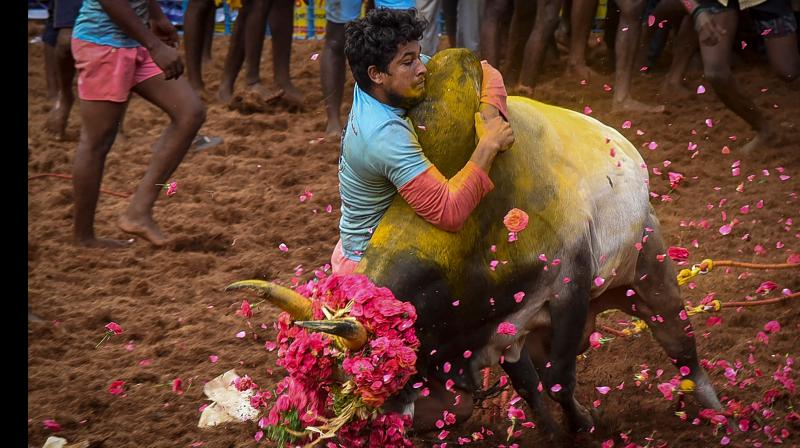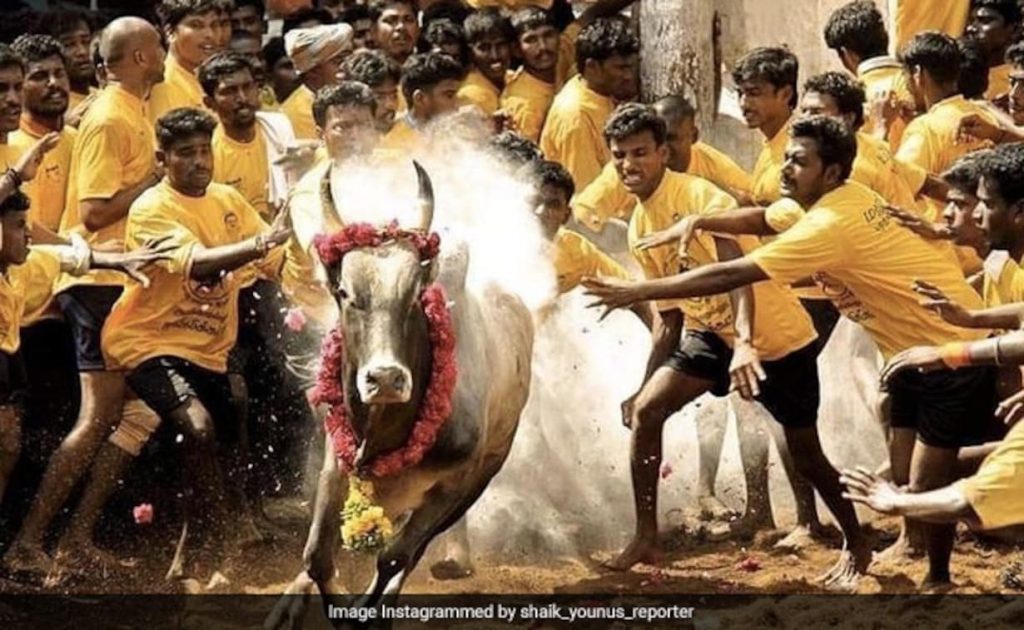Jallikattu is a traditional bull-taming event that is held in Tamil Nadu, India. It is typically held during the Pongal festival, which is a harvest festival celebrated in January. The event involves releasing a bull into an open field and then allowing participants to try to tame the bull by holding onto its hump or horns for a certain distance or duration. Jallikattu is considered to be a symbol of bravery and strength, and is celebrated as part of the culture and tradition of the region.
The origins of Jallikattu can be traced back to ancient times, with evidence suggesting that the event was being held as far back as 2,500 years ago. The bull was an important symbol in ancient Tamil culture, and the taming of the bull was seen as a demonstration of courage and strength.
Historically, Jallikattu was also an important means of preserving native breeds of bulls. These breeds were highly valued for their strength, stamina, and milk-yielding ability, and Jallikattu helped to ensure that only the strongest and most capable bulls were used for breeding.
Jallikattu was banned by the Indian Government in 2011 and later in 2016, due to concerns about the welfare of the bulls and the safety of participants. However, it was lifted by the Tamil Nadu government in 2017, after protests in the state and it is still celebrated in some parts of Tamil Nadu.
Jallikattu is considered special for a few reasons. One of the main reasons is that it is an important part of the cultural and traditional heritage of the Tamil Nadu region in India. It is a centuries-old event that has been passed down through generations, and is deeply ingrained in the local culture.
Additionally, Jallikattu is considered a showcase of bravery and skill. The sport is considered a test of courage for the young men who participate, and winning or participating in Jallikattu is considered a great honor.
However, due to the welfare of the bulls and safety of participants, the event has been banned and lifted multiple times by the Indian Government. It is important to note that, animal welfare organizations and animal rights activists argue that the event is cruel to the animals and should be banned permanently.
Why was Jallikattu banned?
Jallikattu has been a controversial topic, with some people arguing that it should be banned due to concerns about the welfare of the bulls and the safety of participants, while others argue that it is an important part of the cultural and traditional heritage of the region and should be allowed to continue.
Animal welfare organizations and animal rights activists argue that the event is cruel to the animals and should be banned permanently. They argue that the bulls are often subjected to mistreatment and abuse in preparation for the event, and that the event itself can be dangerous for both the bulls and the participants.
On the other hand, supporters of Jallikattu argue that the event is an important cultural tradition that should be respected and protected. They also argue that the event can be made safer for both the bulls and the participants through proper regulations and oversight.
Ultimately, whether or not Jallikattu should be banned is a complex issue with valid arguments on both sides. It is important to consider the cultural and traditional importance of the event as well as the welfare of the bulls and the safety of participants.





Comment here